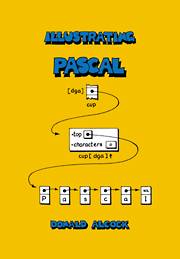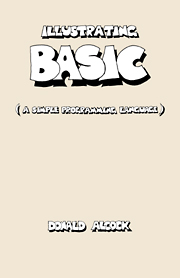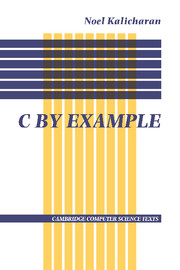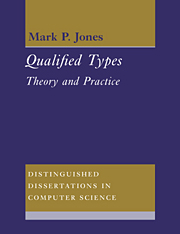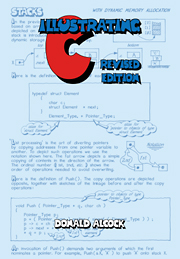Illustrating Pascal
This book, written entirely by hand, is an introduction to programming in Pascal. It starts with the fundamental concept of a stored program and works through to the manipulation of records in dynamic storage. The style of presentation is pictorial. This book may be used as a self-contained reference manual for Pascal to BS 6192 and ISO 7185. Besides defining the statements and structures of Pascal this book illustrates the use of such features in small but complete programs. These programs introduce fundamental techniques of programming such as symbol-state tables, bubble sort, quicksoft, stacks and queues, reverse Polish notation, linked lists, shortest-route technique, doubly linked rings, binary trees, hashing technique and other tools of the programmer's trade.
Reviews & endorsements
'I urge you to read this book especially if you're concerned with user manuals. If all books were presented with such clarity, much time and effort would be saved.' Computer Bulletin
'I wish this book had been around when I was learning Pascal.' Personal Computer World
'Very few books have made learning a computer language as easy as this one has, and it can be recommended to all.' ST World Magazine
' … this is a book that's a joy to recommend to anyone wishing to start writing Pascal programs.' Personal Computer Weekly
'Don't buy a book on Pascal until you've looked at this illuminating and illuminated manuscript.' Personal Computing with the Amstrad
Product details
February 2011Adobe eBook Reader
9780511892264
0 pages
0kg
This ISBN is for an eBook version which is distributed on our behalf by a third party.
Table of Contents
- Preface
- 1. Principles
- 2. Rudiments
- 3. Syntax
- 4. Arithmetic
- 5. Control
- 6. Functions and procedures
- 7. Types and sets
- 8. Arrays and strings
- 9. Records
- 10. Files
- 11. Interactive input
- 12. Dynamic storage
- 13. Dynamic strings
- Bibliography
- Quick reference
- Index.

